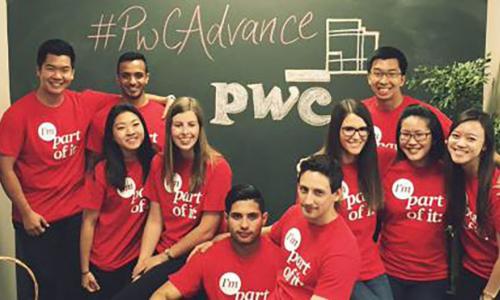
Being a pretty typical introvert, one of the things that I need to put more effort into than a lot of more outgoing people is building and maintaining new relationships. Friends, coworkers, other professional contacts, you name it - any new relationship.
I use the words "more effort" with purpose. To say that networking with people is more difficult or challenging for me would be misleading. While the effort that something requires and its difficulty level often overlap, there are two fundamentally different constructs at play. Not everything requiring a lot of effort is difficult, and not everything that's difficult demands a lot of effort.
Any conversation about looking for work that I have with students involves a discussion about networking. For many, even the word 'networking' evokes feelings of terror. I'll admit, I still cringe a bit when I hear the concept being discussed in certain circles. That might sound kind of strange coming from a career advisor, but read on to see my explanation.
'Networking' is one of those words that carries a lot of baggage with it. It's hard not to start thinking of big events filled with suit-wearing, business card peddling, dog-eat-dog types; or stuffy conferences replete with team building exercises. Networking in this sense sounds very much like an activity or series of activities that one must go out and do.
Really, all networking means is creating and maintaining relationships with people, whatever that means and however it's accomplished.
It's no secret that western society values extraversion over introversion. Not many people hope their kids won't be social adepts who flourish around other people. The typical process of obtaining employment also favours those with a natural ease in the social arena, and as such, a lot of the advice you'll read about looking for work will encourage strategies that extraverts will have a lot easier time putting into practice, because they require a lot of social interaction.
So what do I mean by extravert and introvert anyway? For the sake of time and space I'll make an oversimplification and simply state that extraverts are people who tend to be energized by extensive social interaction, and introverts are people who tend to be tired out by extensive social interaction. If you think of people as batteries, going to a large social interaction of some kind is like being plugged in to an electrical socket for an extravert, while more focused one on one or individual undertakings will tend to drain their charge.
Introvert batteries on the other hand lose their charge during large social interactions and are recharged by smaller, one on one or individual things like coffee with a couple of friends or spending time alone reading. Introversion does not necessarily equal shyness, though in my own case I can say that I used to be a very shy child, and that might be typical of those on the introverted side of things (personality traits tend to emerge in early childhood and are usually pretty stable throughout life).
So, networking in the traditional sense is likely to be something that takes more effort for an introvert, because it tires them out.
What about networking in the non-traditional sense?
Introverts actually tend to excel in smaller scale social situations, where they don't have to juggle a bunch of social balloons. It didn't take me long to realize that meeting a bunch of new people at once in a busy or crowded environment was likely to be unsuccessful. This is for the same reason I dislike night clubs, long days at carnivals, even walking to and from classes in a large university - too many people!
But put me in a room with one or two people looking to have a conversation and I'm much more comfortable.
It's entirely possible to do your networking this way. In fact, perhaps the most successful networking method - informational interviewing - is completely based on a small and meaningful interaction with one other person, in which you are able to ask insightful questions about their work and their life. The best part? The best conversationalists are those who do the best listening. Call me crazy, but I'd be willing to bet that listening skills are a bit more popular in the introvert crowd.
Are you a natural introvert? If you feel like networking means you have to go out and talk to lots of people, relax. Forget about the stuff that takes more work! Use your strengths to your advantage! Get talking to people one on one, and put those natural listening skills to good use!
















